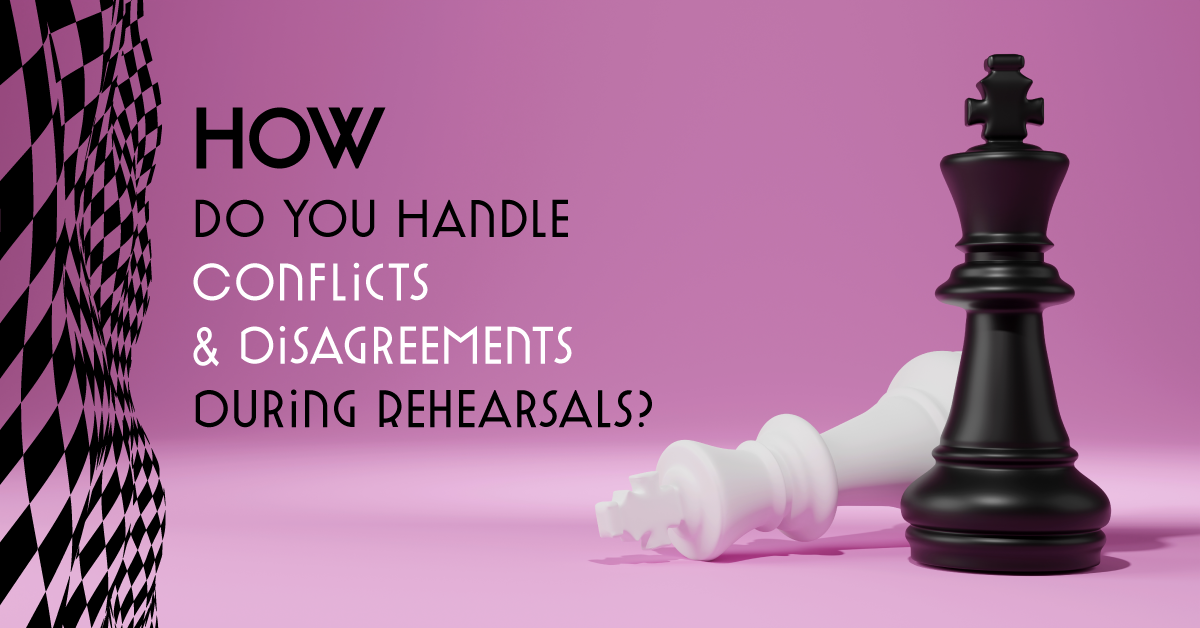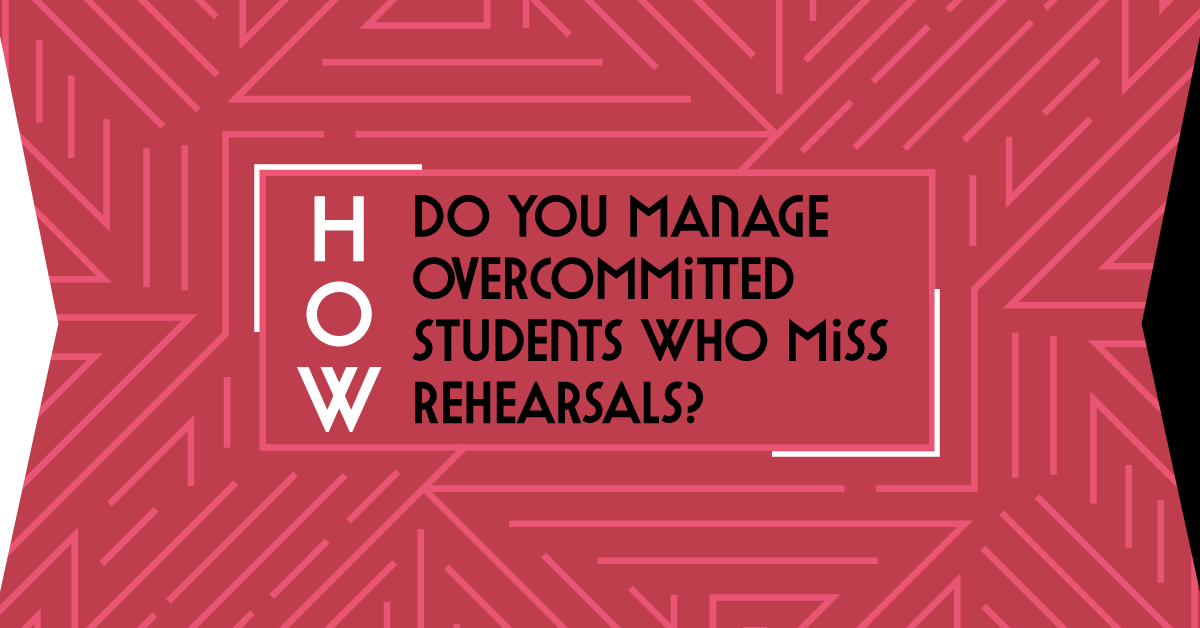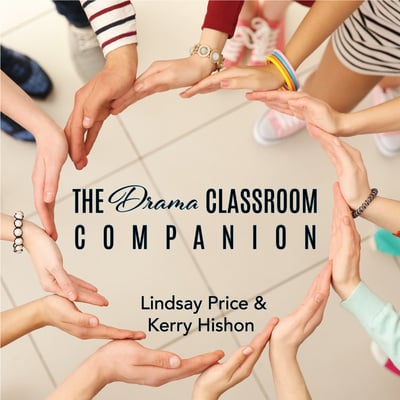How Do You Handle Conflicts & Disagreements During Rehearsals?
Stepping onto the stage is an exciting journey, but, inevitably, conflicts and disagreements among cast members can occasionally take centre stage during rehearsals. To avoid chaos, directors need effective strategies and creative solutions to minimize conflicts and foster a harmonious theatrical experience.
So, we went straight to the source to get the inside scoop from those who’ve been there: drama teachers.
We asked: How do you handle conflicts & disagreements among cast members during rehearsals?
Step Back & Talk It Out
Take 10… Come back with suggestions… 😎 (Chris C.)
Count to 10 (or 5 slowly!) and ask what the issue is. Then say, “No one is trying to be difficult. How do we move on?” (Guy N.)
Each person gets their say. We decide what compromise can be made. If not, I’m the final decision. (Heidi T.)
Do Team-Building Activities
Stop and do a bonding activity. My fav is apologies, ahas, and appreciations. Everyone says all of those. Strong reset. (Cassandra G.)
Hold Mediation Sessions
I can’t tell you how many times I’ve said, “Keep the drama on the stage! Now… the two of you — you have an appointment with me at 2:30 today. See you then. For now, let’s get back to rehearsal.” (Rogue Playhouse)
They can submit a form with me during rehearsal, and I mediate conflicts during breaks or after rehearsal. (Spartan PA)
Establish a Code of Conduct
I explain that in the workplace we don’t always agree with our co-workers but we must remain respectful. (Claire PM.)
Leave the egos at the door and focus on the production. The rehearsal process is a time for trying out or playing with ideas. At some stage I believe the person nominated as the director will focus on bringing it all together. (Gordon B.)
The Director Gets the Final Word
The rule of acting is that only a director can comment on someone's acting or the stage manager on the loss of a line. (Deborah F.)
Theater is a benevolent dictatorship. The director has the final say, always. Ideas can flow, but in the end the director decides. (Colleen M.)
I tell my casts that every director has their own style, and while I consider myself collaborative, we don't have time for consensus. Someone has to make final decisions and that someone is me. If that is clear from day 0, then no conflict can fester. (Isaac W.)
Additional Reading:
Problem Solving: When Students Don’t Work Well Together
Related Articles
The Drama Classroom Companion
by Lindsay Price & Kerry Hishon
The Drama Classroom Companion is filled with articles and exercises to build the skills needed for theatrical performance as well as real world skills like creative thinking, critical thinking, collaboration, and communication.
The Rehearsal Companion
by Kerry Hishon
You’ve chosen the play, paid the royalties, done the script analysis, held your auditions, and cast the show. Tomorrow is the first rehearsal. Are you ready? Really ready? The Rehearsal Companion can help!





